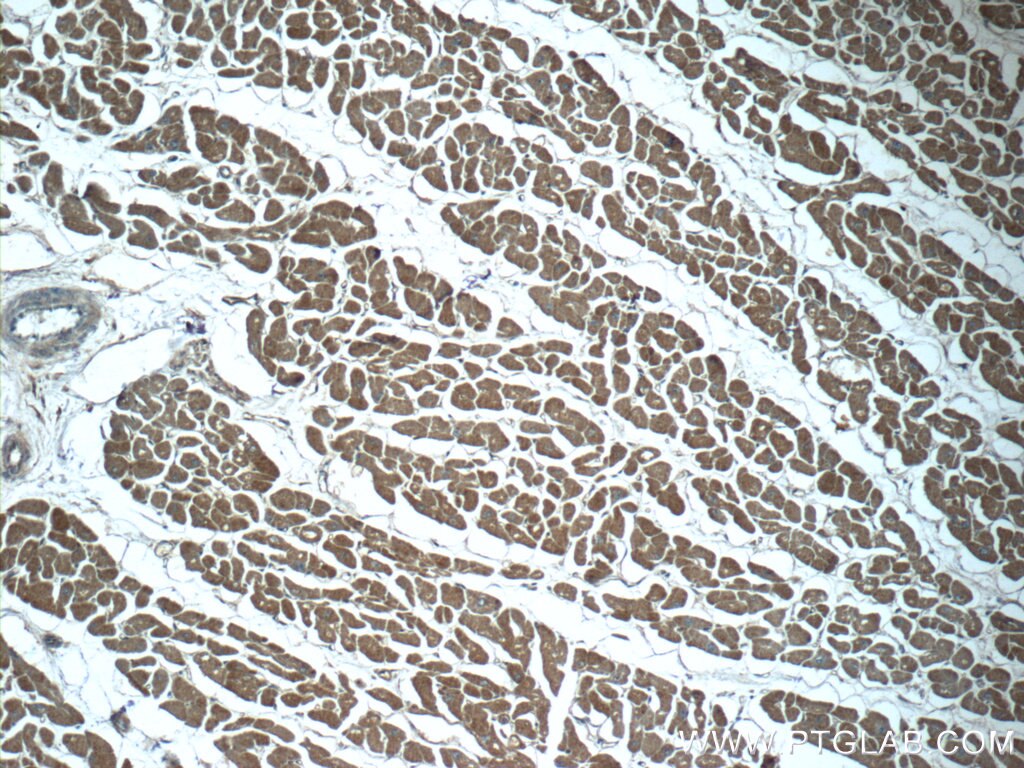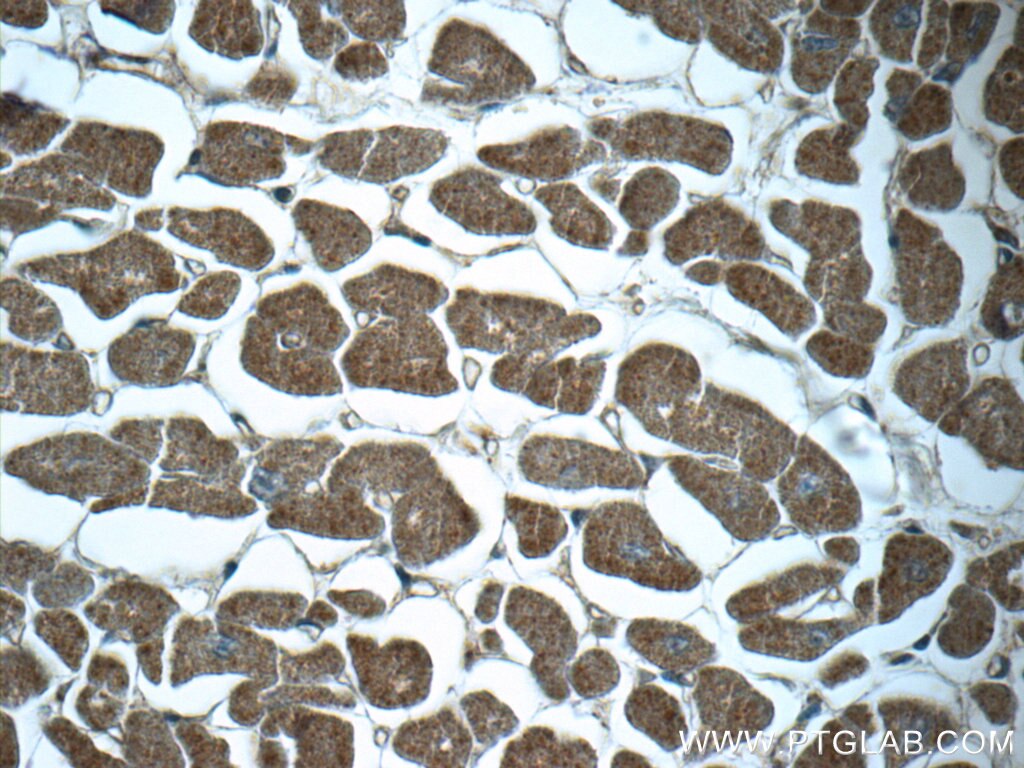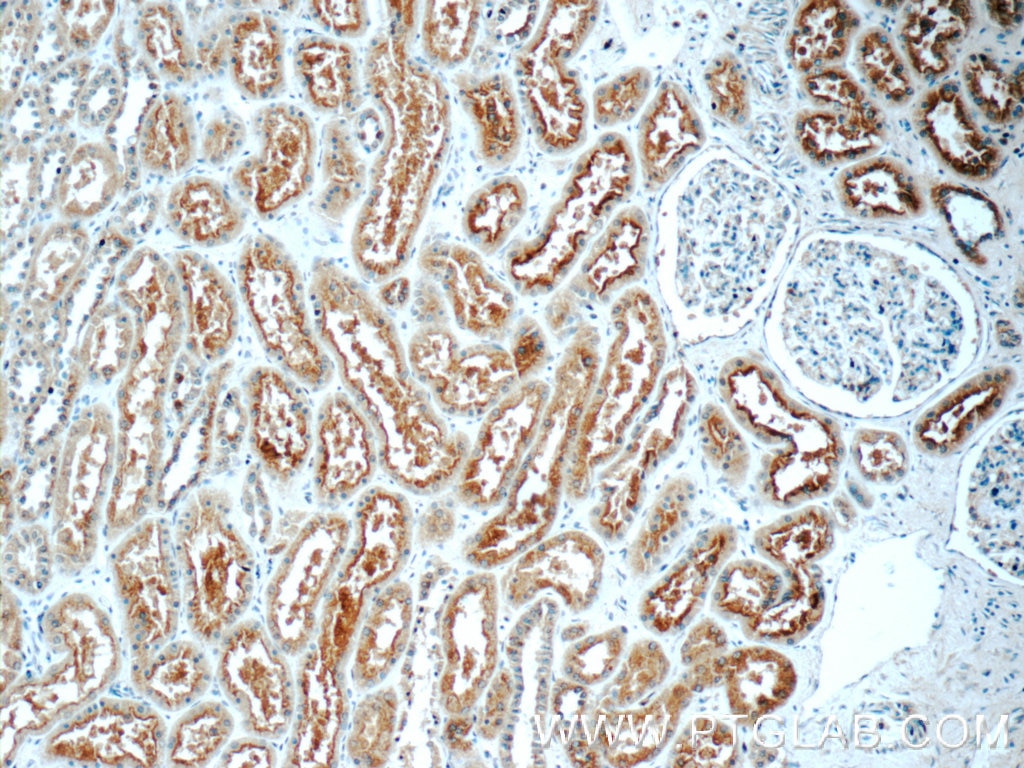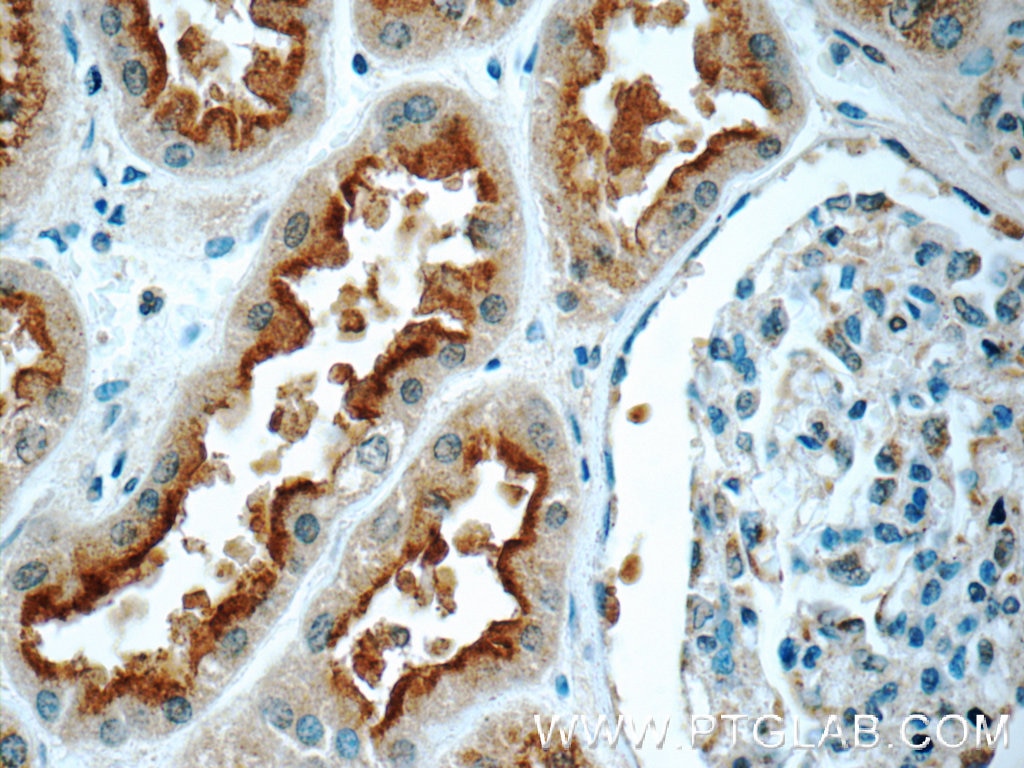Validation Data Gallery
Tested Applications
| Positive IHC detected in | human heart tissue, human kidney tissue Note: suggested antigen retrieval with TE buffer pH 9.0; (*) Alternatively, antigen retrieval may be performed with citrate buffer pH 6.0 |
Recommended dilution
| Application | Dilution |
|---|---|
| Immunohistochemistry (IHC) | IHC : 1:20-1:200 |
| It is recommended that this reagent should be titrated in each testing system to obtain optimal results. | |
| Sample-dependent, Check data in validation data gallery. | |
Published Applications
| KD/KO | See 2 publications below |
| WB | See 2 publications below |
Product Information
23842-1-AP targets NDUFC1 in WB, IHC, ELISA applications and shows reactivity with human samples.
| Tested Reactivity | human |
| Cited Reactivity | human |
| Host / Isotype | Rabbit / IgG |
| Class | Polyclonal |
| Type | Antibody |
| Immunogen |
CatNo: Ag20835 Product name: Recombinant human NDUFC1 protein Source: e coli.-derived, PET30a Tag: 6*His Domain: 1-76 aa of BC107682 Sequence: MAPSALLRPLSRLLAPARLPSGPSVRSKFYVREPPNAKPDWLKVGFTLGTTVFLWIYLIKQHNEDILEYKRRNGLE 相同性解析による交差性が予測される生物種 |
| Full Name | NADH dehydrogenase (ubiquinone) 1, subcomplex unknown, 1, 6kDa |
| Calculated molecular weight | 76 aa, 9 kDa |
| GenBank accession number | BC107682 |
| Gene Symbol | NDUFC1 |
| Gene ID (NCBI) | 4717 |
| RRID | AB_2879336 |
| Conjugate | Unconjugated |
| Form | |
| Form | Liquid |
| Purification Method | Antigen affinity purification |
| UNIPROT ID | O43677 |
| Storage Buffer | PBS with 0.02% sodium azide and 50% glycerol{{ptg:BufferTemp}}7.3 |
| Storage Conditions | Store at -20°C. Stable for one year after shipment. Aliquoting is unnecessary for -20oC storage. |
Protocols
| Product Specific Protocols | |
|---|---|
| IHC protocol for NDUFC1 antibody 23842-1-AP | Download protocol |
| Standard Protocols | |
|---|---|
| Click here to view our Standard Protocols |
Publications
| Species | Application | Title |
|---|---|---|
bioRxiv Endocrine persistence in ER+ breast cancer is accompanied by metabolic vulnerability in oxidative phosphorylation
| ||
Cancer Res Oxidative Phosphorylation is a Metabolic Vulnerability of Endocrine Therapy-Tolerant Persister Cells in ER+ Breast Cancer
|




